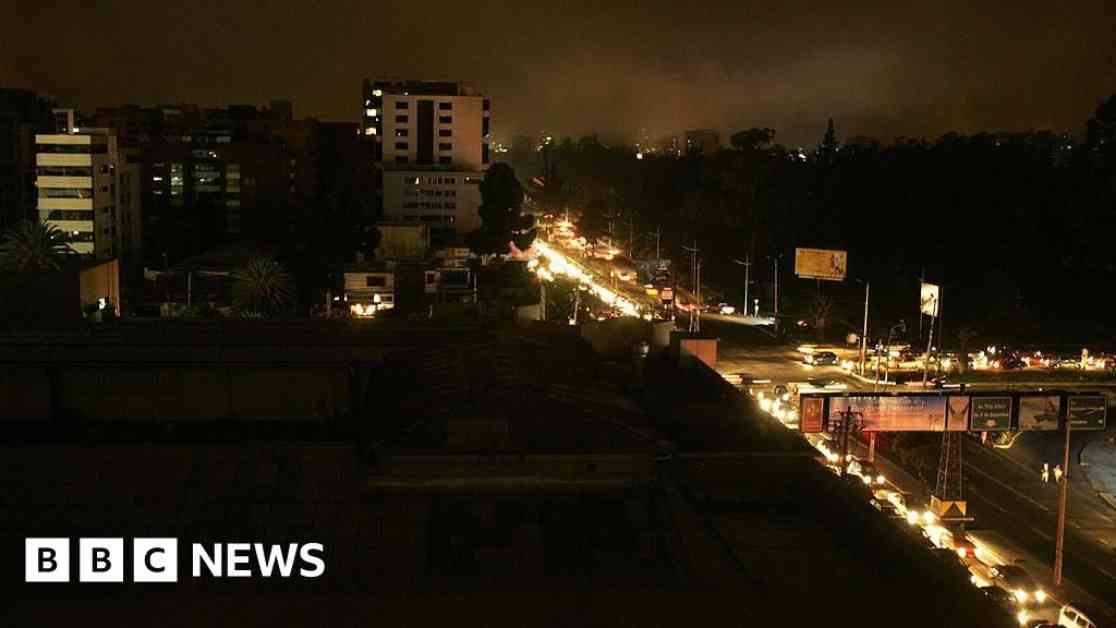Ecuador faced a major nationwide blackout recently, affecting approximately 18 million people. The blackout was attributed to the breakdown of a transmission line by Public Works Minister Roberto Luque. As a result, the capital city Quito’s subway system came to a standstill and traffic lights ceased to function in the afternoon.
Efforts are underway to resolve the issue promptly, with Mr. Luque emphasizing the severity of the situation caused by the transmission line failure. Quito Mayor Pabel Muñoz also highlighted the impact of the blackout, mentioning that even the metro system experienced a power outage despite having its own separate system.
The Quito Metro confirmed that the interruption in services was a result of a general failure in the national interconnected electrical energy system. This incident comes after the government had to implement planned blackouts earlier in the year due to a drought that affected the country’s energy supply, primarily sourced from Colombia.
Ecuador has a history of experiencing large-scale blackouts, with the most recent incident adding to the challenges faced by the country’s power infrastructure. The authorities are working diligently to address the current blackout and restore power to the affected regions as soon as possible.
It is crucial for Ecuador to invest in improving its energy infrastructure to prevent such widespread blackouts in the future. The reliance on energy imports from neighboring countries like Colombia underscores the importance of enhancing domestic energy production and distribution capabilities to ensure a more reliable power supply for the population.













